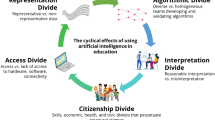Abstract
In Heidegger on Ontotheology: Technology and the Politics of Education, I argue that Heidegger’s ontological thinking about education forms one of the deep thematic undercurrents of his entire career, but I focus mainly on Heidegger’s later work in order to make this case. The current essay extends this view to Heidegger’s early magnum opus, contending that Being and Time is profoundly informed – albeit at a subterranean level – by Heidegger’s perfectionist thinking about education. Explaining this perfectionism in terms of its ontological and ethical components (and their linkage), I show that Being and Time’s educational philosophy seeks to answer the paradoxical question: How do become what we are? Understanding Heidegger’s strange but powerful answer to this original pedagogical question, I suggest, allows us to make sense of some of the most difficult and important issues at the heart of Being and Time, including what Heidegger really means by possibility, death, and authenticity.
Similar content being viewed by others
Author information
Authors and Affiliations
Corresponding author
Rights and permissions
About this article
Cite this article
Thomson, I. Heidegger’s perfectionist philosophy of educationin Being and Time. Cont Philos Rev 37, 439–467 (2004). https://doi.org/10.1007/s11007-005-6886-8
Issue Date:
DOI: https://doi.org/10.1007/s11007-005-6886-8




